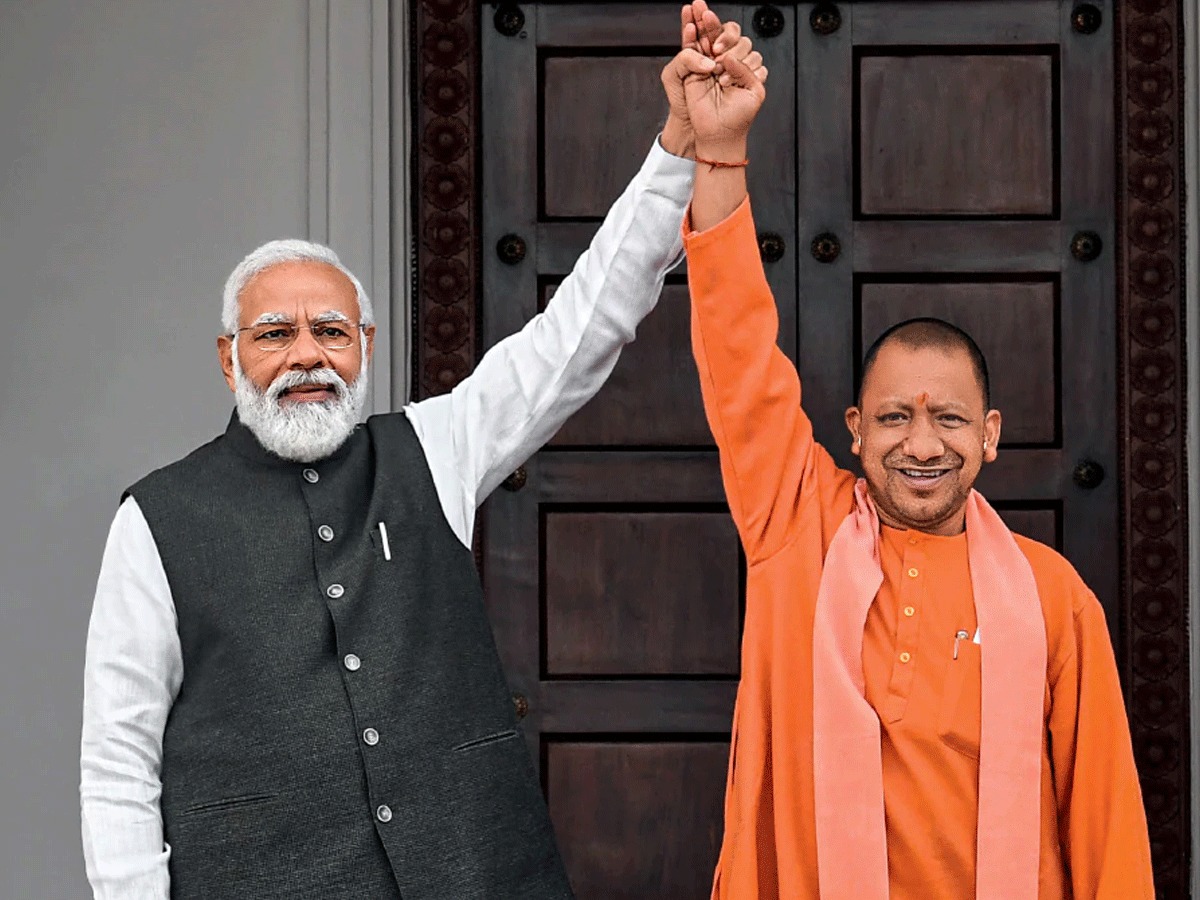
 BJP’s Muslim Outreach: Bridging Divides for a United India
BJP’s Muslim Outreach: Bridging Divides for a United India
In recent times, the Bharatiya Janata Party (BJP) has been actively working towards reaching out to the Muslim community, aiming to break away from its ‘anti-Muslim’ image. Under the banner of Mission 2024, the BJP has devised a special strategy, focusing on communal chaupals in Muslim-dominated villages, starting from February 1. The objective is clear – win over more than 75 seats in the upcoming Uttar Pradesh elections and reshape the party’s relationship with the Muslim electorate.
Inclusive Governance: Modi Government’s Commitment
To dispel any skepticism, BJP leaders have committed to providing information on government schemes to the Muslim community, emphasizing that the Modi government’s policies are inclusive and do not discriminate on religious grounds. The ‘Sabka Saath, Sabka Vikas’ mantra echoes the commitment to the holistic development of all citizens.
Clarifying Misunderstandings: Ram Mandir Issue
Addressing misconceptions surrounding the Ram Mandir issue is a crucial part of the BJP’s outreach. Party sources indicate a plan to clarify that the Supreme Court has made the decision, and the government is merely implementing it. This move aims to bridge gaps and ensure that communities understand the legal and constitutional aspects of the Ram Mandir construction.
Commencing the Outreach: Western UP in Focus
The first phase of the program will unfold in Western Uttar Pradesh, where BJP workers will engage with the Muslim communities in 4100 villages. The BJP Muslim Morcha will play a pivotal role in leading this initiative, fostering connections and understanding the unique challenges faced by these communities.
Strategies for Winning Over Muslim Voters
Specific strategies for winning over Muslim voters in Western UP include addressing local issues, building trust, and ensuring that the BJP is seen as a party that genuinely cares about the concerns of the community. The outreach program aims to create a positive impact on the 21 Lok Sabha seats in Western UP with a significant Muslim population.
Challenges and Criticisms: Acknowledging Concerns
While the BJP’s Muslim outreach is commendable, there are challenges and criticisms that need acknowledgment. Some may question the sincerity of the program, given the party’s historical stance. Addressing these concerns transparently will be crucial for the success of the initiative.
National Scope: Extending the Outreach Nationwide
The BJP plans to expand the outreach program to different parts of the country, understanding that a united India requires efforts across regions. The phased implementation will allow the party to adapt its strategy based on local nuances and needs.
Utilizing Social Media: Modern Communication Channels
In the age of digital communication, the BJP will leverage social media platforms to effectively communicate its efforts and engage with a wider audience. Sharing success stories, community initiatives, and real-time updates will contribute to building a positive narrative.
Inclusivity in Political Discourse: Representation Matters
Encouraging inclusivity in political discourse is a vital aspect of the outreach. The BJP recognizes the importance of representation and participation, and the party is committed to fostering an environment where diverse voices are heard and valued.
Grassroots Initiatives: Addressing Local Issues
To demonstrate its commitment to addressing community issues, the BJP will highlight grassroots-level initiatives. These initiatives will focus on tangible solutions to problems faced by Muslim communities, showcasing the party’s dedication to making a positive impact at the local level.
Feedback Mechanism: Continuous Improvement
Establishing a robust feedback mechanism is crucial for the success of the outreach program. The BJP aims to create an open dialogue with the Muslim community, welcoming feedback and suggestions to continuously improve and adapt its strategies.
Measuring Success: Metrics and Assessment
Success metrics will be essential to gauge the effectiveness of the Muslim outreach program. These metrics will include changes in perceptions, political preferences, and the overall sentiment within the Muslim community. Regular assessments will guide the party in refining its approach.
In conclusion, the BJP’s Muslim outreach signifies a significant shift in its approach to inclusive governance. The party’s commitment to addressing the concerns of the Muslim community and dispelling misconceptions reflects a nuanced understanding of the importance of unity in diversity. As the outreach program unfolds, the BJP aims to bridge divides, foster trust, and build a more inclusive political landscape for a united India.
Read More: When Cricket Entered the Courtroom Why Justice Surya Kant Referenced Jasprit Bumrah

 Share
Share



